Final month, I shared the studying listing from my month-long effort to raised perceive diet. After studying a couple of dozen books (together with two textbooks), I frankly admit there’s loads I nonetheless don’t know. And likewise, I really feel like I gained a good understanding of the present mainstream scientific perspective.
Predictably, and disappointingly, lots of the replies I bought to that article seemed one thing like this:
“However have you ever learn so-and-so? They wrote a ebook explaining why the consultants are all improper!”
It’s predictable as a result of it’s simple to see how ideology, misinformation, and the complexity and uncertainty of doing elementary science make diet one of many extra contentious fields on the market.
Nonetheless, it’s additionally disappointing as a result of not one of the readers I spoke with appeared to disagree with me that their favored stance wasn’t mirrored within the dominant scientific perspective—they merely thought the dominant scientific perspective was improper.
This, to me, displays a extra elementary disagreement I’ve with these readers—not one among dietary recommendation1 however of how we should always kind beliefs within the first place.
My elementary worldview is that:
If you wish to have extra true beliefs, it is best to merely imagine the consultants who research the subject, more often than not.
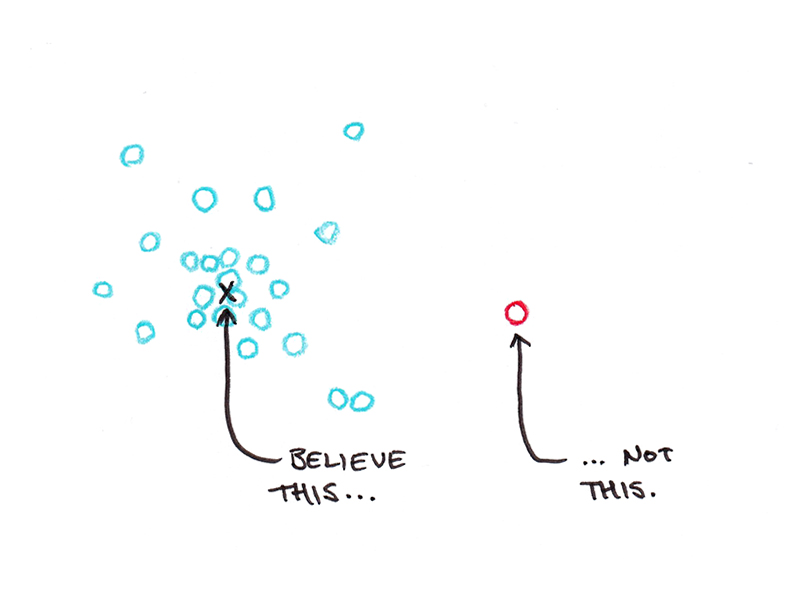
Briefly, if you wish to have an correct worldview, it is best to keep away from being a contrarian virtually the entire time and easily settle for no matter individuals who have studied a subject extensively give it some thought.
Why We Ought to Imagine Specialists
The rationale for defaulting to believing consultants in virtually all instances is easy:
- An skilled is, by definition, a wise one who is aware of loads a couple of matter.
- The everyday skilled has extra true opinions than the everyday non-expert as a result of they’ve extra information with which to kind an opinion.
- The most typical skilled opinion is much more correct than the everyday skilled. It’s because every skilled has a unique subset of all out there information on a subject, so the typical view is a greater “finest guess” than any particular person’s opinion.
- The bulk skilled opinion could also be improper. However contrarian opinions are much more more likely to be improper. The worth of this angle is probabilistic: skilled consensus will fail typically, but it surely fails much less usually than the contrarian various. It’s due to this fact a robust default presumption to carry.
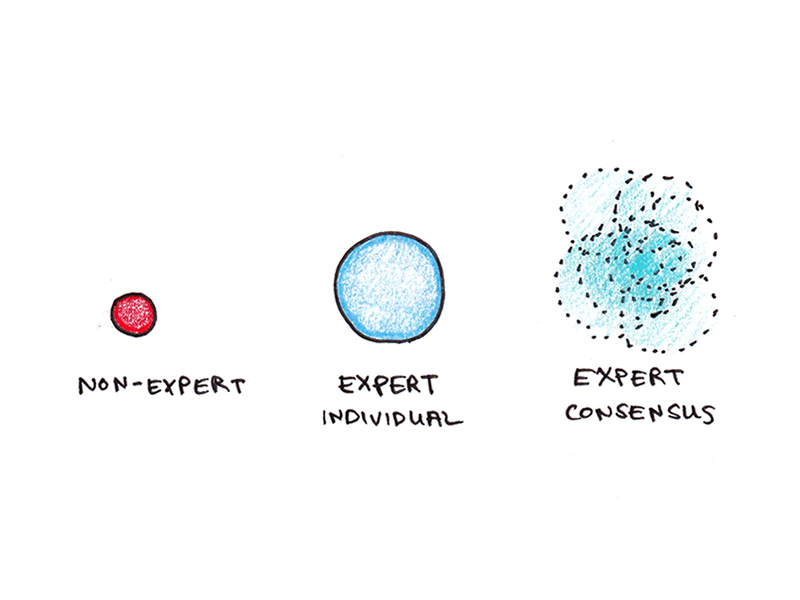
I neglect precisely the place I first heard this argument, however I discover the logic troublesome to reject. Specialists are extra correct than non-experts. The skilled consensus2 is extra correct than any explicit skilled.
Regardless of the logic of this argument, the recommendation merely to imagine the dominant scientific viewpoint on a problem has lots of dissenters. Certainly, despite the fact that we might simply acknowledge its accuracy, if a viewpoint doesn’t “really feel” proper, isn’t it sort of brainless to only settle for no matter some group of consultants tells us to assume? Shouldn’t you make up your personal thoughts and are available to your personal conclusions?
Objections to Merely Trusting Experience
There are lots of objections to the anti-contrarian epistemology I’m supporting right here, and I’d prefer to evaluate a couple of of them. Whereas I do assume a few of these arguments may be reputable, they want be invoked rigorously. Profitable contrarianism is like profitable playing—attainable in idea, but it surely regularly results in shedding your shirt.
1. “Specialists ignore X.”
The most typical cry of the skeptic is that the consultants ignore helpful proof. On this view, as a result of the skilled opinion fails to pattern some a part of the helpful information wanted to kind an opinion, the conclusions aren’t to be trusted.
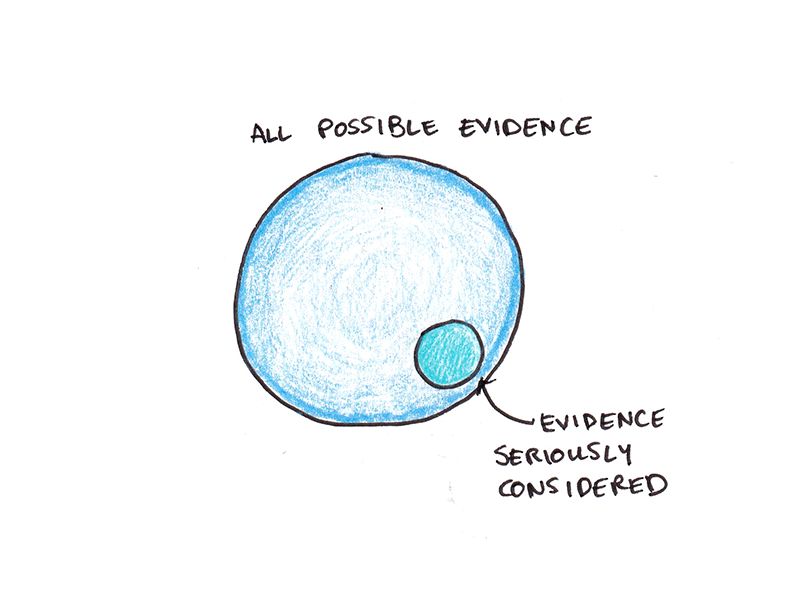
That is undoubtedly true, however I’d argue it’s a advantage reasonably than a vice. A variety of seeming proof isn’t dependable for forming conclusions, and less complicated theories usually result in higher explanations than ones that attempt to account for the whole lot.
A physicist could assume an object is a superbly inflexible dice mendacity on a frictionless airplane. A nutritionist could simplify meals into a set of chemical substances. An economist could assume individuals behave as rational utility-maximizing brokers.
The omissions made by these fashions will not be haphazard—consultants themselves debate about which elements are vital. Fashions and theories should essentially be less complicated than actuality; a map as giant because the territory it describes can be ineffective.
Claiming {that a} physique of experience is improper as a result of it systematically ignores some issue is solely a restatement of the contrarian declare that “issue X is vital, however mainstream skilled opinion says it isn’t.” In different phrases, this argument doesn’t work by itself. You’d want an extra rationalization for why consultants ignore X, despite the fact that it’s evidently vital.
2. “Specialists are biased.”
Though my rationale for believing consultants is predicated on the concept consultants are merely good individuals who know loads a couple of matter, that isn’t fairly correct. In actuality, consultants are social teams that rigorously draw boundaries between members and non-members.
This social actuality influences experience, and anybody who has frolicked with consultants can attest to how a lot social elements affect which beliefs take root in skilled communities.
If researchers are ideologically dedicated to a specific place, or they discover sure conclusions of their analysis unpalatable for non-epistemic causes, or even when they’re disproportionately drawn from a bunch that’s more likely to maintain robust prior beliefs, these can all be causes to query skilled conclusions.
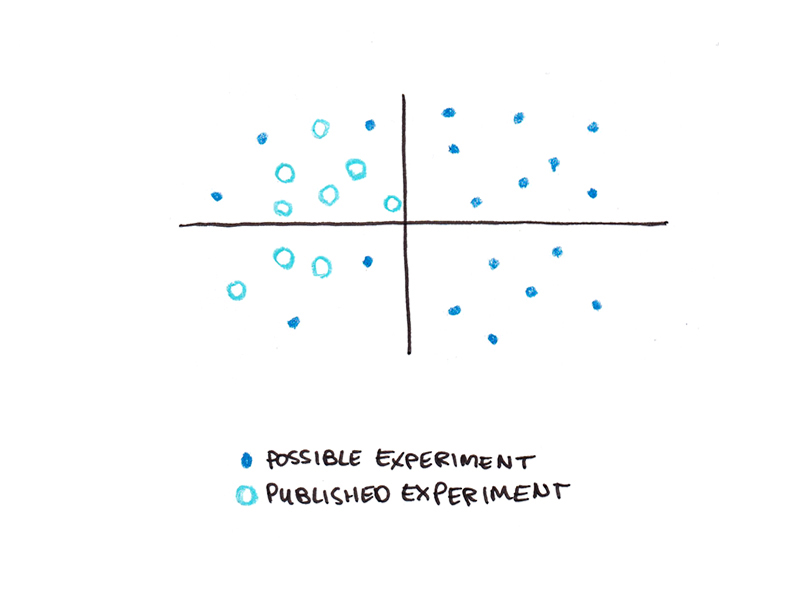
For example, I discover it troublesome to wholeheartedly settle for lots of the science completed by meditation or psychedelic researchers. These fields have a variety impact the place most of the researchers start with robust beliefs that these issues must work, so there’s a higher likelihood of discovering false optimistic results for the same old causes science can go improper.3
Nonetheless, whereas bias is actual and doubtlessly a floor for reputable contrarianism, we should additionally flip the mirror on ourselves. We, too, have biases that predispose us to be favorable to some views reasonably than others. Casually discarding skilled opinion due to bias is the pot calling the kettle black. Should you’re going to dismiss the bulk opinion of a subject due to bias, you want robust proof that you just your self usually tend to be neutral—a excessive bar that few contrarians can surmount.
3. “These consultants are faux.”
Maybe the largest indictment of a subject is solely to decry that the model of experience they observe is faux. If the information the sector has amassed is utter rubbish, then there’s no actual purpose for believing any of the claims it makes.
This declare is best to see with the good thing about hindsight. In fact scholastics who believed in Aristotle’s four-elements idea of physics have been faux. In fact medical doctors who used blood letting and leeches as cure-alls have been faux. In fact alchemists, astrologers and fortune-tellers are faux. We see these fields, and the information they gathered, as largely nugatory enterprises as we speak—the typical individual would have been higher off staying at dwelling than visiting a health care provider who would possible bleed them to loss of life for a minor ailment.
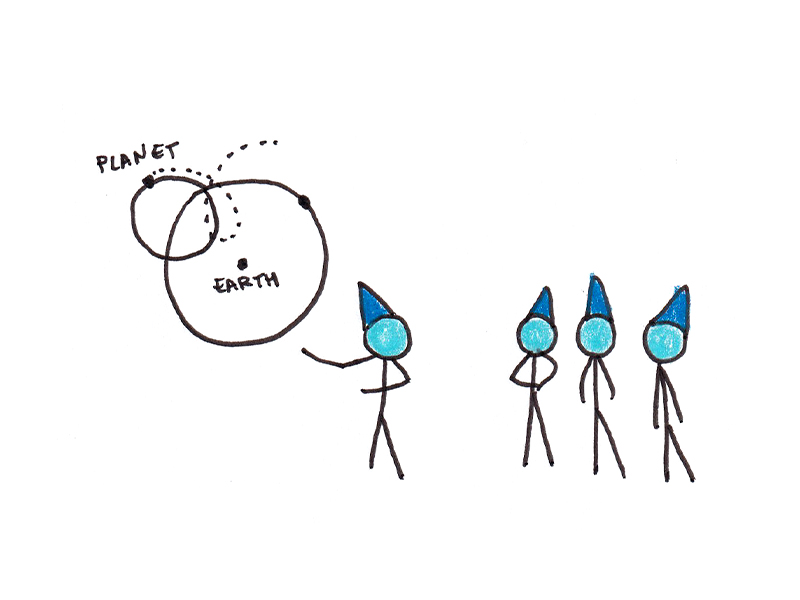
In fact, the concept economics, theoretical physics, finance, diet, cognitive science or social psychology are faux fields with faux experience is common amongst contrarians of all stripes. In spite of everything, for those who can reject the legitimacy of consultants, you possibly can low cost their consensus opinions wholesale.
I’m sympathetic to this declare. Like most individuals, I’ve my preferences for proof and my hierarchy of fields I’m keen to imagine extra strongly—and people I’m extra more likely to roll my eyes at.
However, the argument for believing particular claims of skilled opinion extends to believing in particular fields of experience. Mental life doesn’t exist in a vacuum. Totally different teams of consultants all vie for supremacy on most matters—there are a lot of questions which can be concurrently tackled by social psychologists, economists, anthropologists and humanities students. If an mental argument clearly “wins” within the courtroom of opinion amongst clever observers, then that subject will get a bigger share of the mental market and the less-successful mental group withers.
Certainly, the explanation it’s simpler to level to previous teams of consultants as being clearly faux is as a result of their paradigms didn’t survive the mental evolutionary course of. Alchemy was outcompeted by chemistry. Aristotle’s idea was outcompeted by Newton’s. Fashionable evidence-based drugs outcompeted bloodletting and folks cures.
Briefly, the rationale for accepting the legitimacy of a subject are the identical because the rationales for accepting a selected declare made inside a subject: If there have been a greater, extra intellectually satisfying strategy, the chances are the higher strategy would dominate the present paradigm—from one other neighborhood of consultants if not from inside.
4. “Trusting consultants is intellectually lazy. You need to evaluate the proof and are available to your personal conclusions.”
A remaining objection doesn’t relaxation on the weak point of skilled opinion, reasonably on the supposed mental vice that merely trusting consultants creates. On this view, being the sort of one who follows together with the mainstream consensus is cowardly and lazy: it is best to bravely assume for your self—even for those who typically get the improper reply.
However this, to me, is a elementary false impression. Trusting experience is just not an intellectually easy process. It takes huge work to carry your worldview even partly in step with what consultants assume. Deep understanding requires you to evaluate a lot of the information that consultants possess—hardly a process for the intellectually lazy.
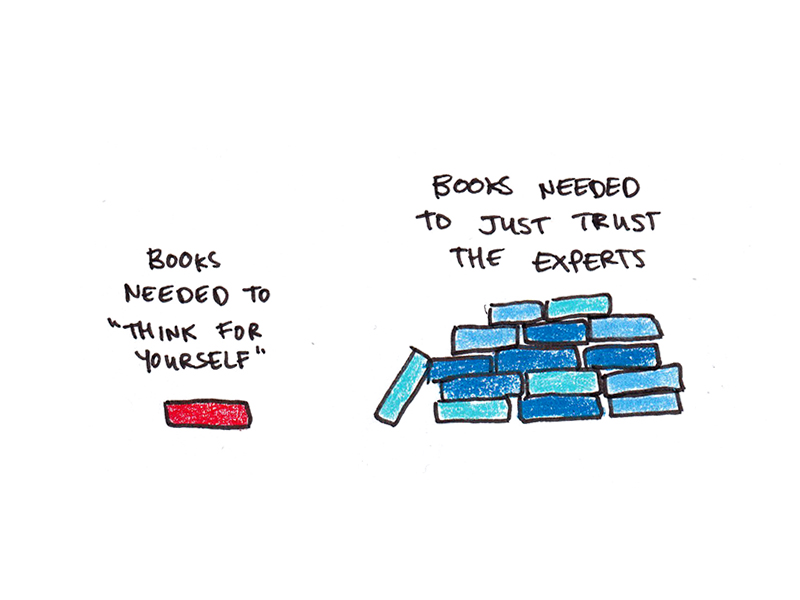
As a substitute, it’s usually the reflexive contrarians who’re intellectually lazy. They would like to learn one flashy ebook that helps a worldview they’re already predisposed to imagine reasonably than wade by a number of dense textbooks that slowly construct the consensus perspective.
Merely parroting the conclusions of consultants is just not sufficient. To actually perceive an skilled conclusion, you’ll want to develop for your self the psychological fashions used to generate it. That’s laborious work. It’s why getting a sophisticated diploma in a subject takes so lengthy—mastering the instruments and fashions wanted to precisely simulate the skilled opinion in a variety of eventualities inside a single subject takes years, and that should occur earlier than the scholar can do their very own significant work in that subject.
Actually good contrarianism not solely has to articulate an opposing view, however present a deep rationalization for why that viewpoint is just not broadly accepted by different good individuals with comparable information. Few consultants in a given subject ever attain this place, by no means thoughts informal readers commenting on a subject exterior of their specialty.
Some Closing, Moderating Elements
My authentic recommendation was:
If you wish to have extra true beliefs, it is best to merely imagine the consultants who research the subject, more often than not.
I’d add a couple of moderating elements to that generalization:
1. Specialists can let you know what to imagine—not how strongly to imagine it.
The standard of proof used to kind skilled beliefs varies broadly. Regardless of this, consultants, on the entire, are extremely assured of their very own opinions. Since making selections in life is determined by not solely what the “finest guess” beliefs are, however how possible they’re to be right, this lack of calibration is an issue for my easy mannequin of trusting consultants.
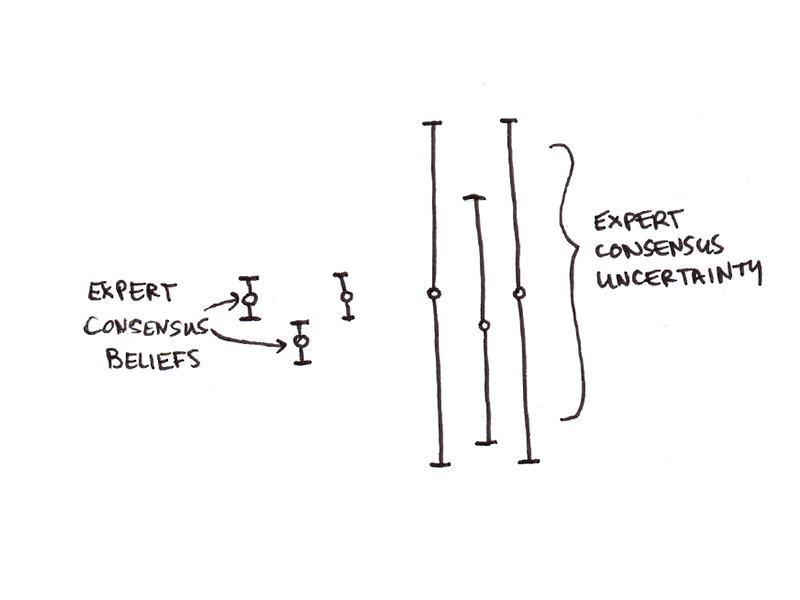
I’ve rather more religion in fundamental physics than fundamental diet, as an example. I’d be extraordinarily shocked if the ideas of quantum mechanics turned out to be improper, but it surely wouldn’t shock me if dietary researchers flip-flopped on the hyperlink between saturated fats and coronary heart illness.
This insecurity calibration signifies that whereas it’s not normally justified to say, “the consultants are all improper, it is best to imagine X as an alternative,” it’s not at all times incorrect to say, “the consultants are improper, you shouldn’t have any opinion on X.” Skepticism of the skilled view in shaky fields is in keeping with the place I’m advocating for, even when true skepticism (reasonably than ardent perception in much more doubtful propositions) is kind of uncommon.
2. In case your purpose isn’t to maximise true beliefs, contrarianism may be justified.
Considerably paradoxically, the person consultants aren’t essentially incentivized to maximise the reality worth of their beliefs. Professional consensus is a sort of smudgy, bland model of a specific worldview; it’s what’s left after averaging out of all kinds of distinctive or uncommon views.
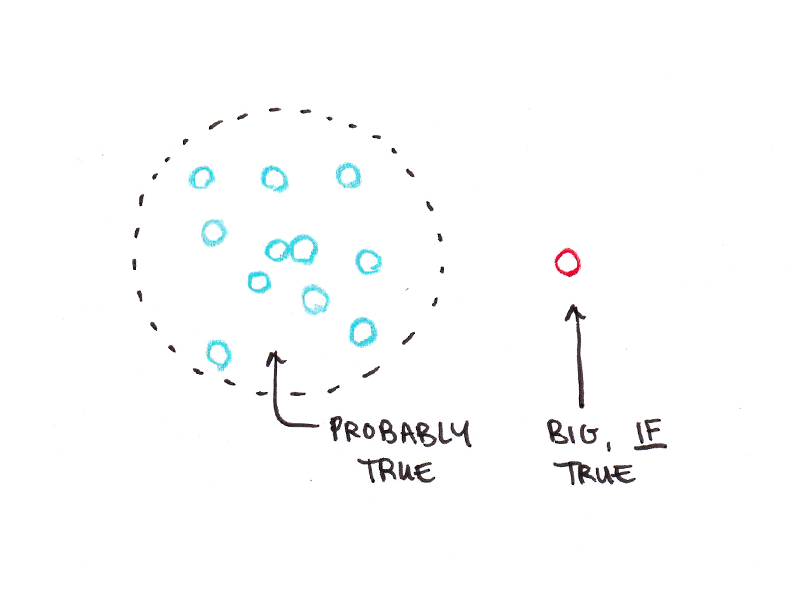
In distinction, a scientist or pundit goals not simply to be proper in regards to the stuff everybody already agrees on, however to be surprisingly right—to carry a perception that later seems to be perceived as extra believable, thus altering the consensus viewpoint.
Certainly, this will even be a very good factor. An mental setting the place all consultants adopted my “simply belief the consultants” maxim would end in extreme conformity of opinion, making bias extra possible. We must always wish to dwell in a world the place consultants don’t agree, and as an alternative debate one another, as this raises the typical high quality of their opinions.4
An analogy is investing. The common investor is best off placing their cash in a low-cost index fund reasonably than choosing shares. Most buyers (together with professionals) fail to beat the market constantly. And but, we do need at the least some quantity of (principally deluded) contrarians making an attempt to actively beat the market, since it’s this very exercise that determines values out there.
Closing Ideas
Whereas I first heard this argument for believing experience ages in the past, I don’t assume its logic alone is what made me try and comply with it extra rigorously in my life.
As a substitute, it’s the expertise of getting been persuaded by a contrarian skilled, being totally satisfied and, years later, being dissuaded from these authentic views as I encountered extra proof. And in contrast to the boy who touched the hearth, it took being burned various instances earlier than I developed the reflex.
Whereas I doubt this argument will carry any dyed-in-the-wool contrarians or conspiracy theorists to my worldview, I do hope it’s going to nudge a couple of individuals into giving extra weight to the dominant skilled perspective, and a bit much less weight to the voices of persuasive-sounding contrarians.
As a result of, finally, having true beliefs does matter. Your beliefs inform the way you make investments, eat, construct your profession, increase your youngsters and maintain your well being. And in case your elementary worldview isn’t optimized for gathering true beliefs, you’re sure to make errors.
Footnotes
- Which, I’ll admit, any factual assertion about dietary recommendation is one thing I solely maintain loosely.
- Or, if no consensus exists, then the point of view which might win a plurality of votes, have been there to be an election.
- The alternative can also be true: If individuals who have an ideological incentive to discover a explicit reply wrestle to seek out it, that’s most likely robust proof for a null conclusion. This was my takeaway on the analysis on cognitive coaching, which has had disappointing outcomes regardless of being researched by many hopeful fans.
- There’s actually a rigidity right here with my recommendation. I acknowledge the worth of believing consultants, and I additionally acknowledge that if that is all I do, my work will most likely fail to have a lot lasting mental worth. I must undertake at the least a gentle diploma of contrarianism in my work, or I’ll danger being irrelevant.




